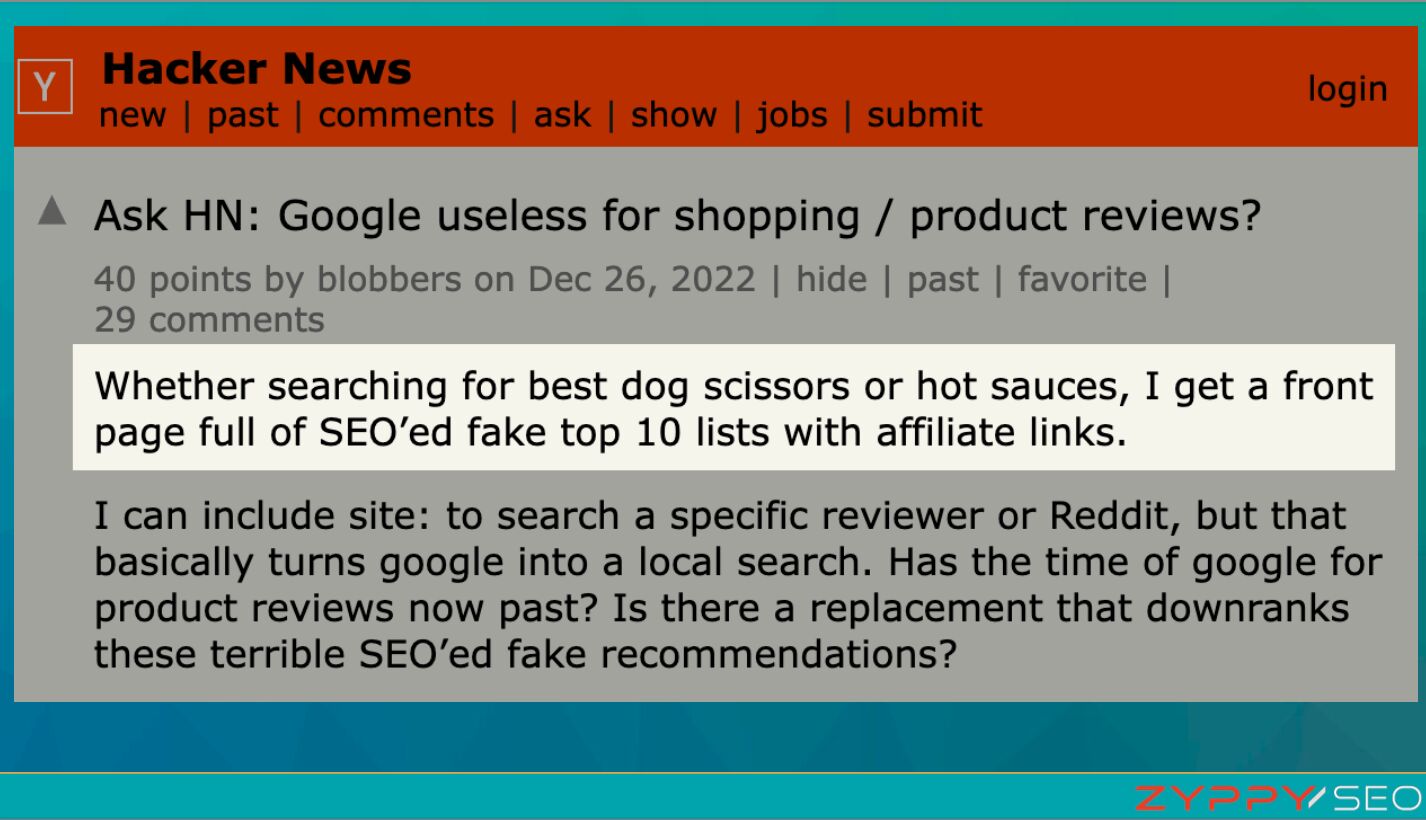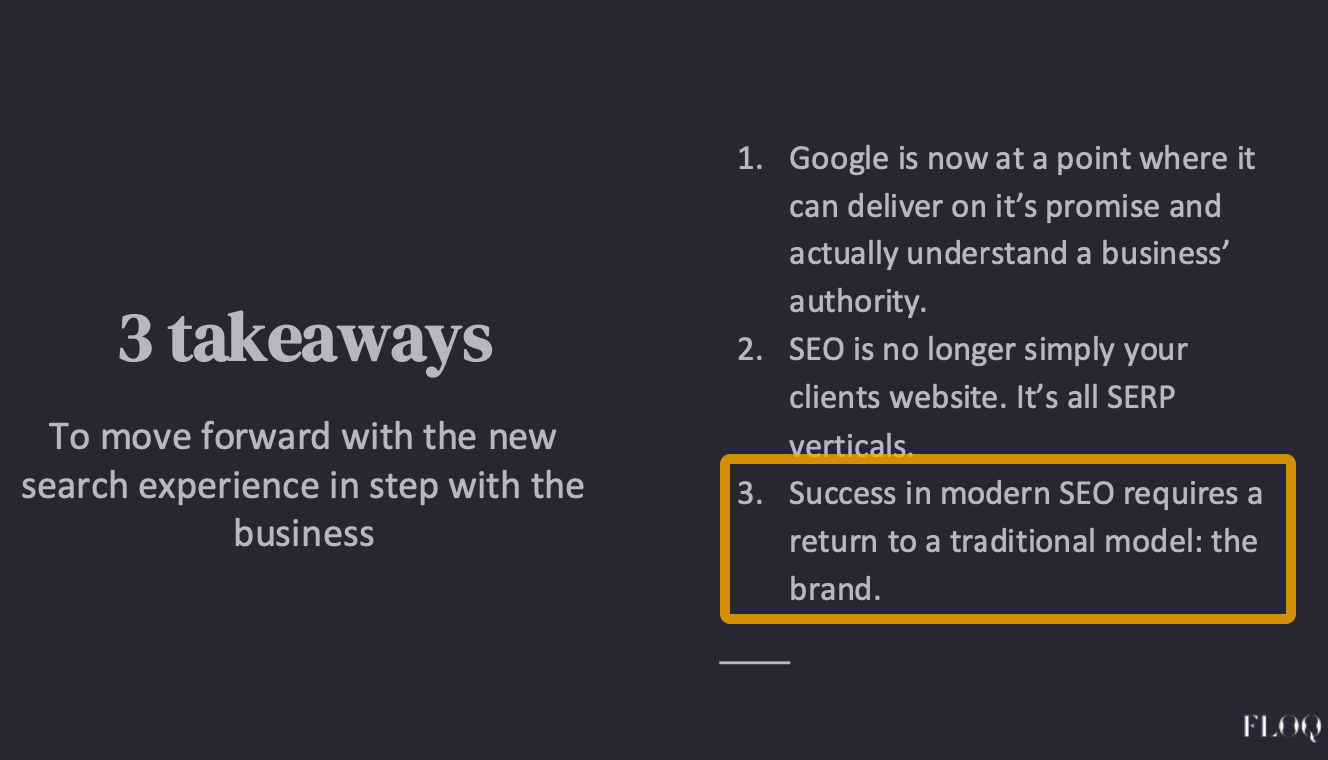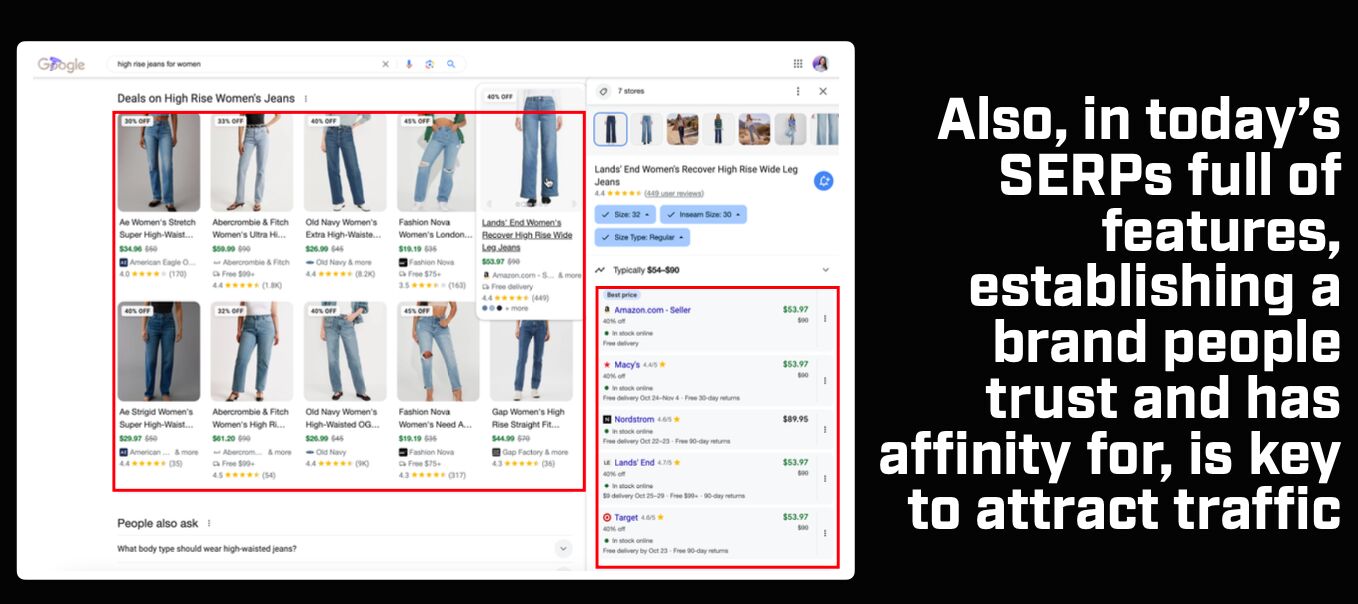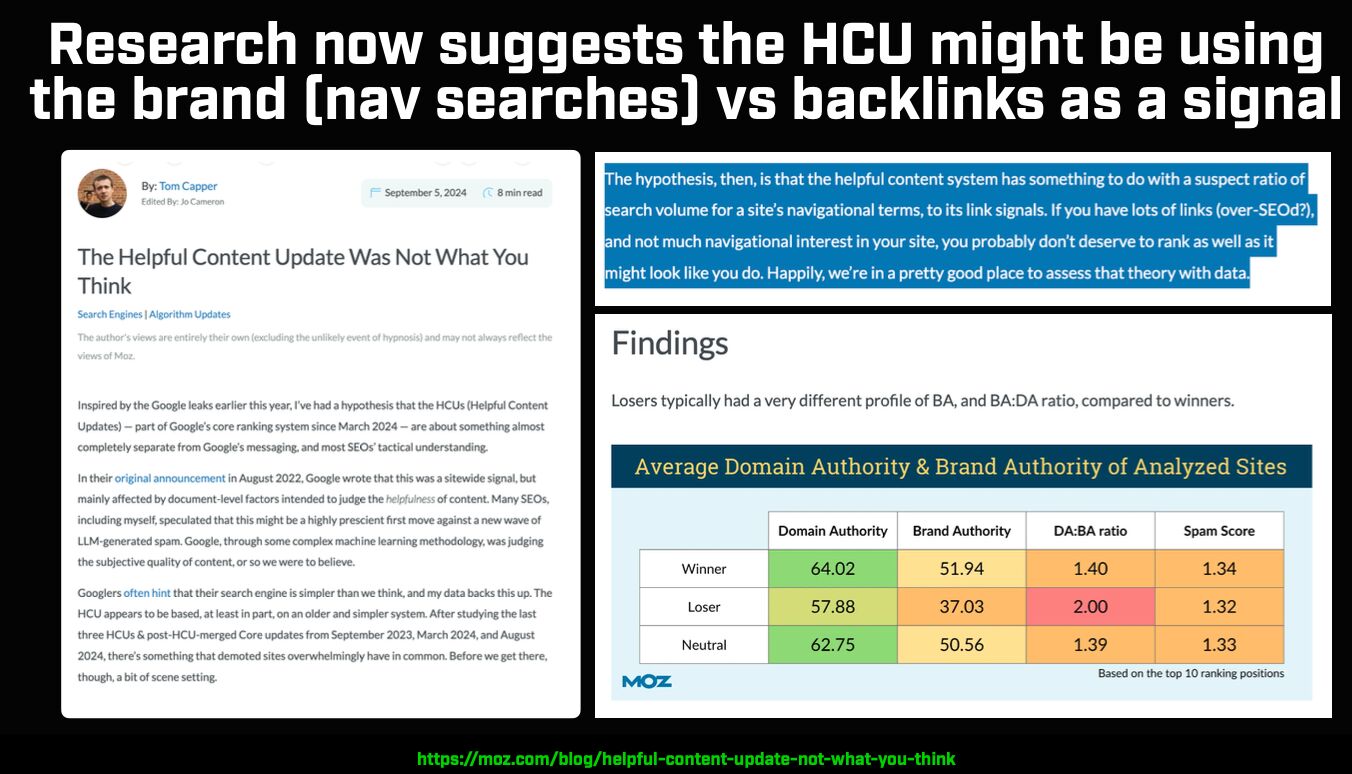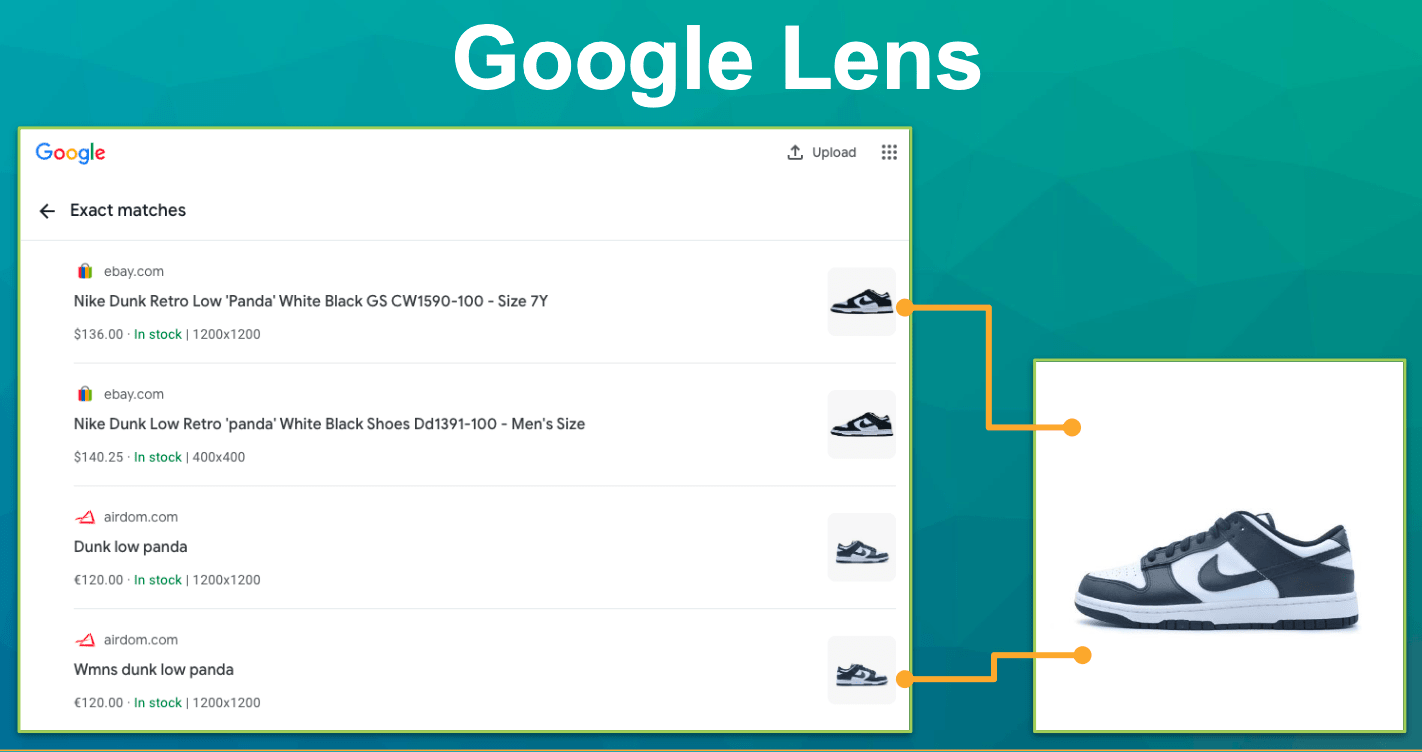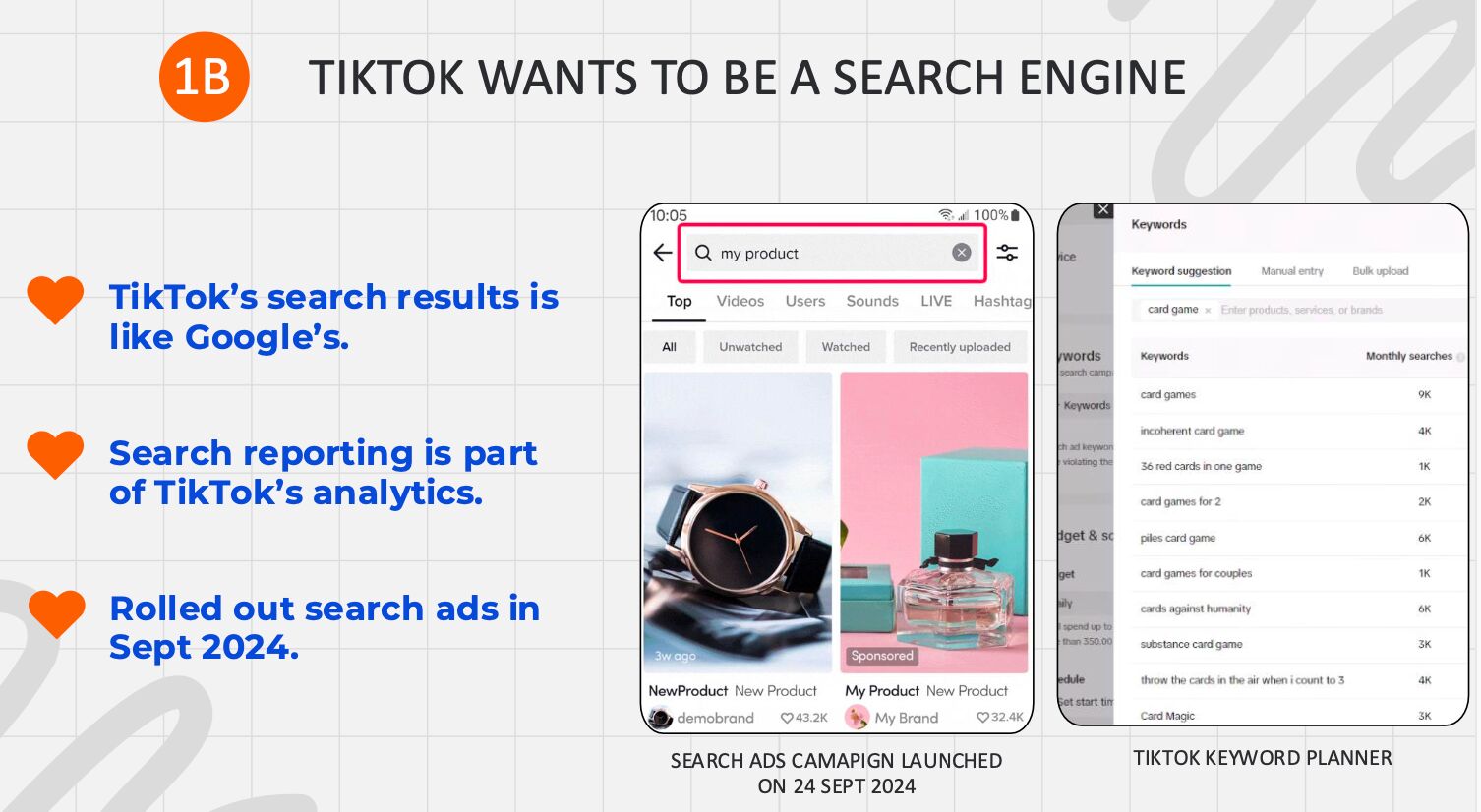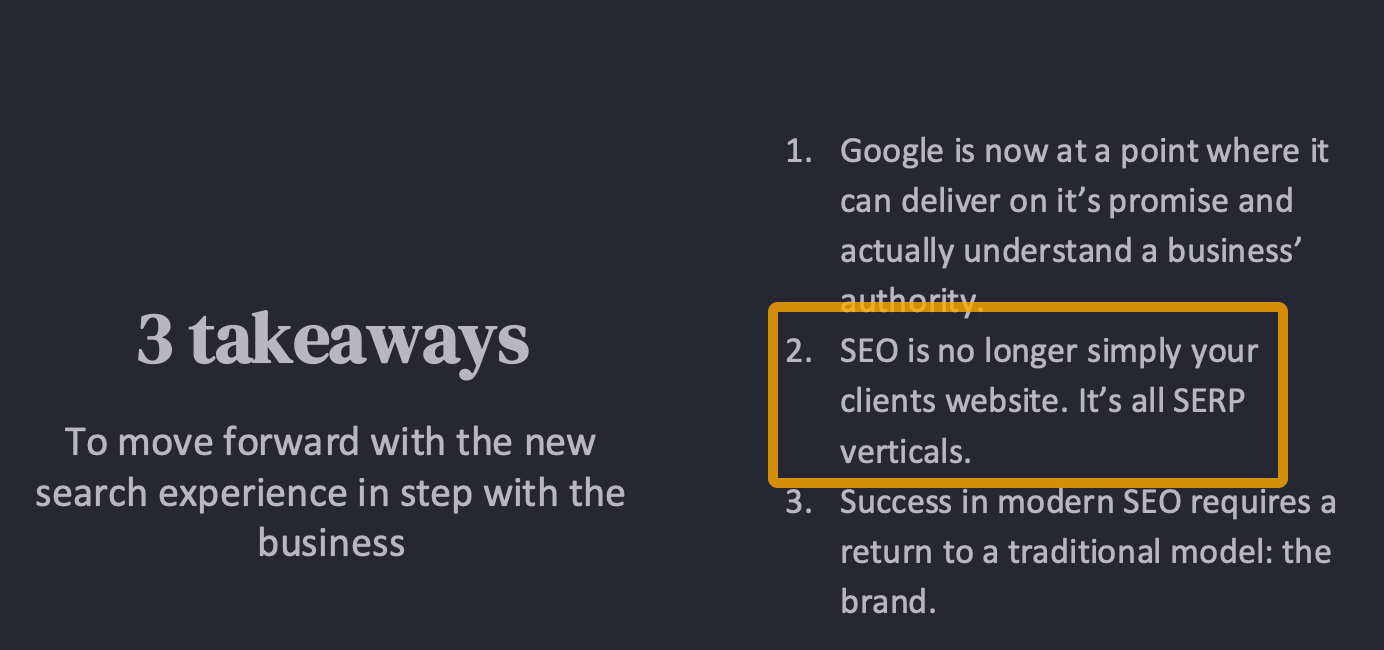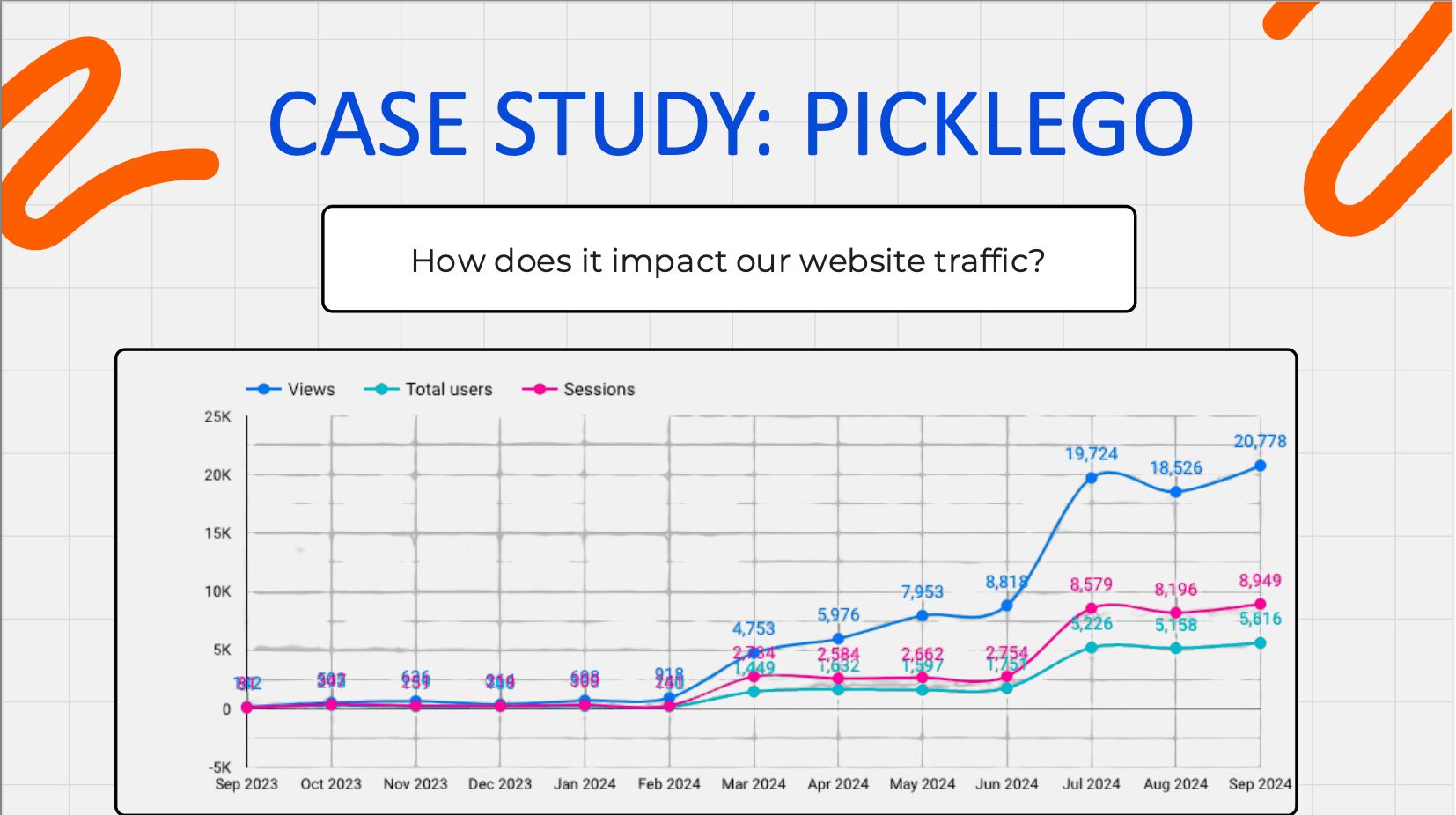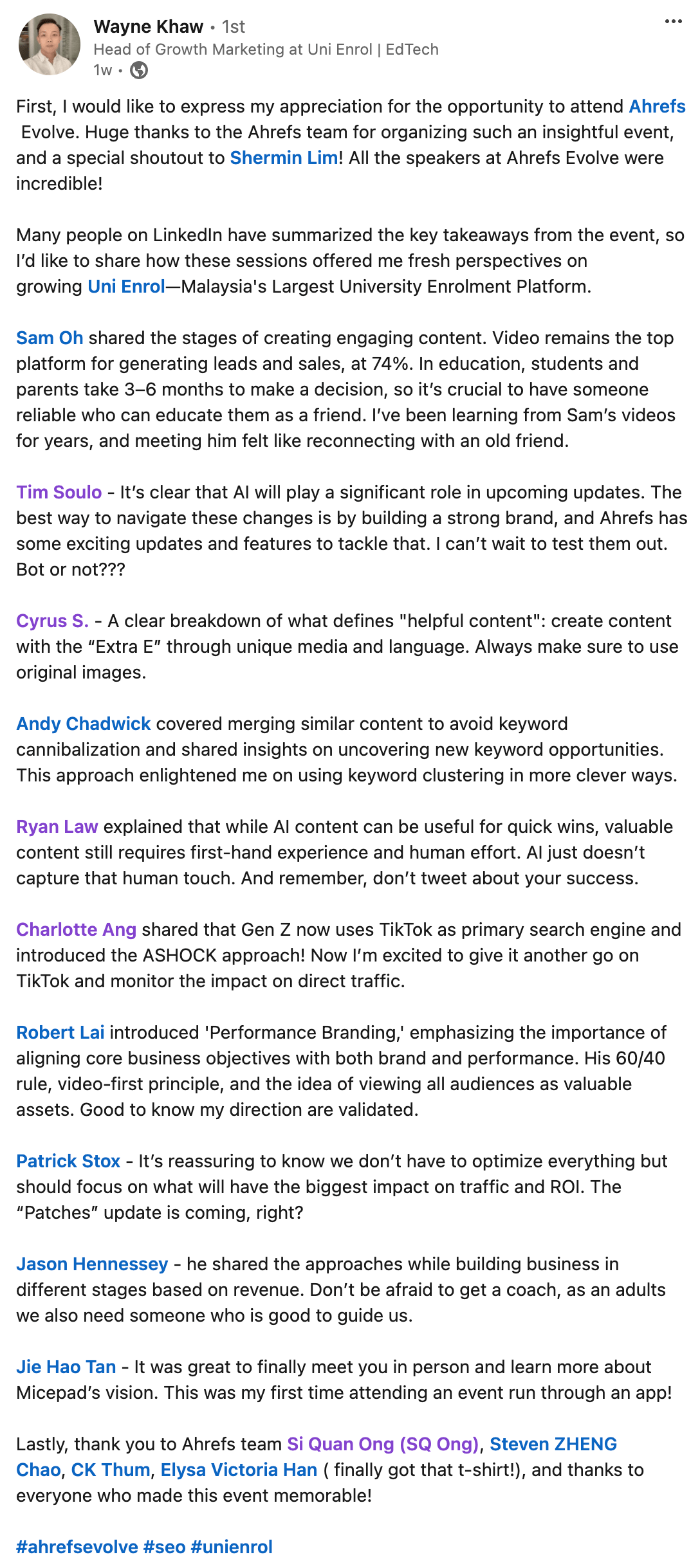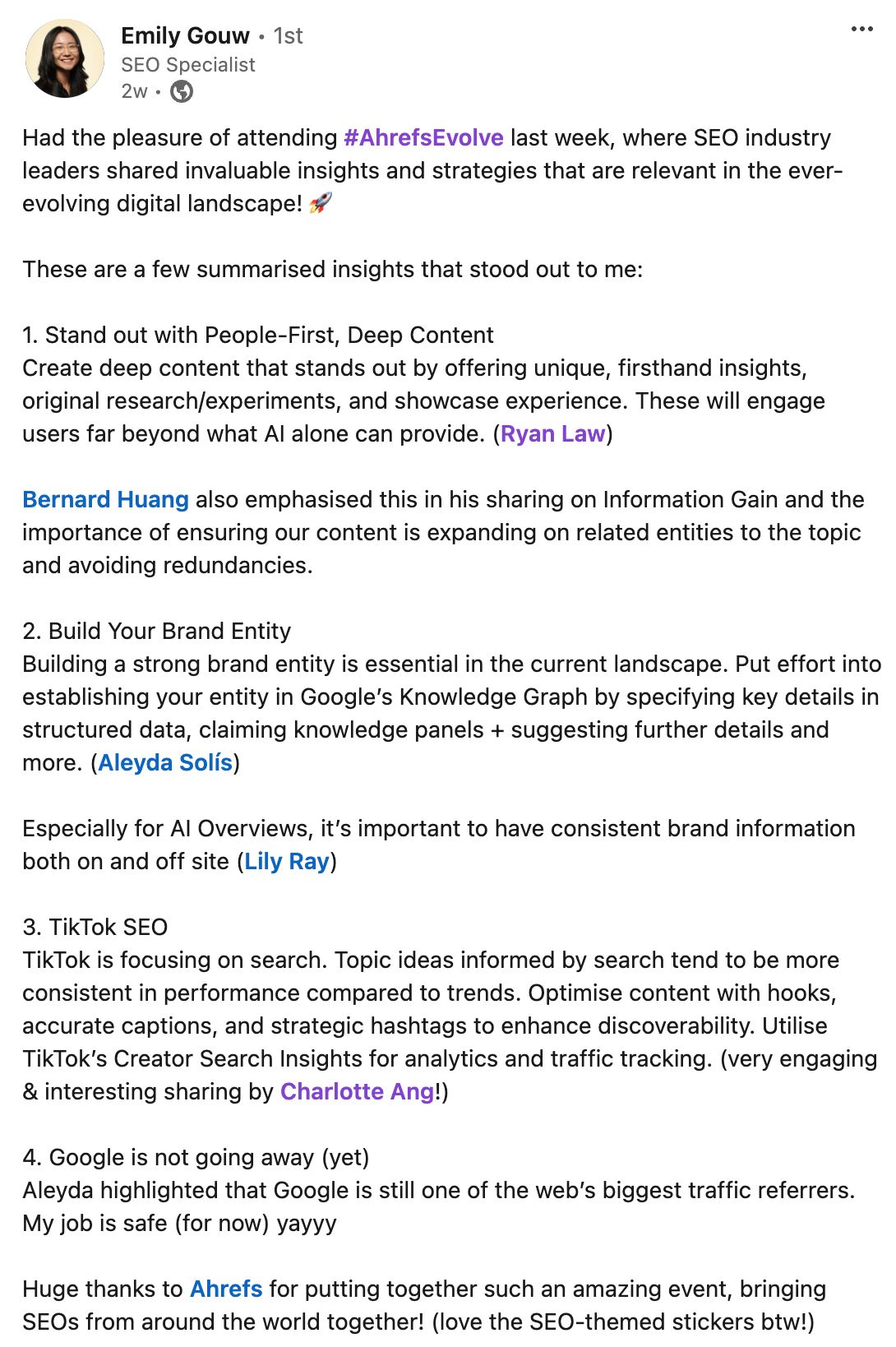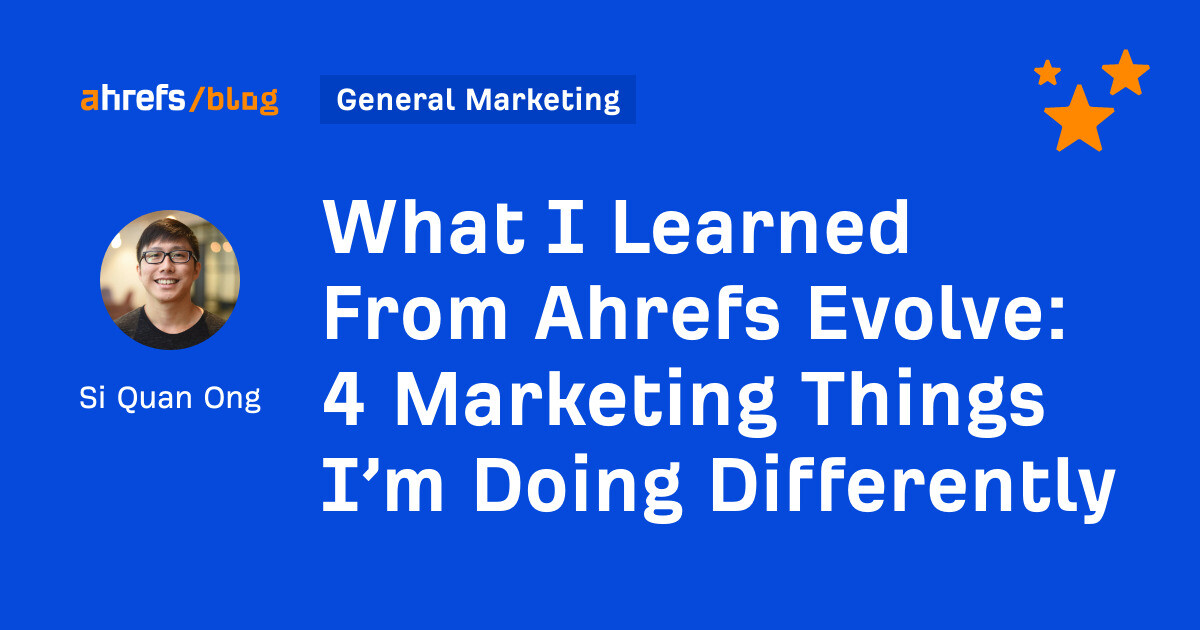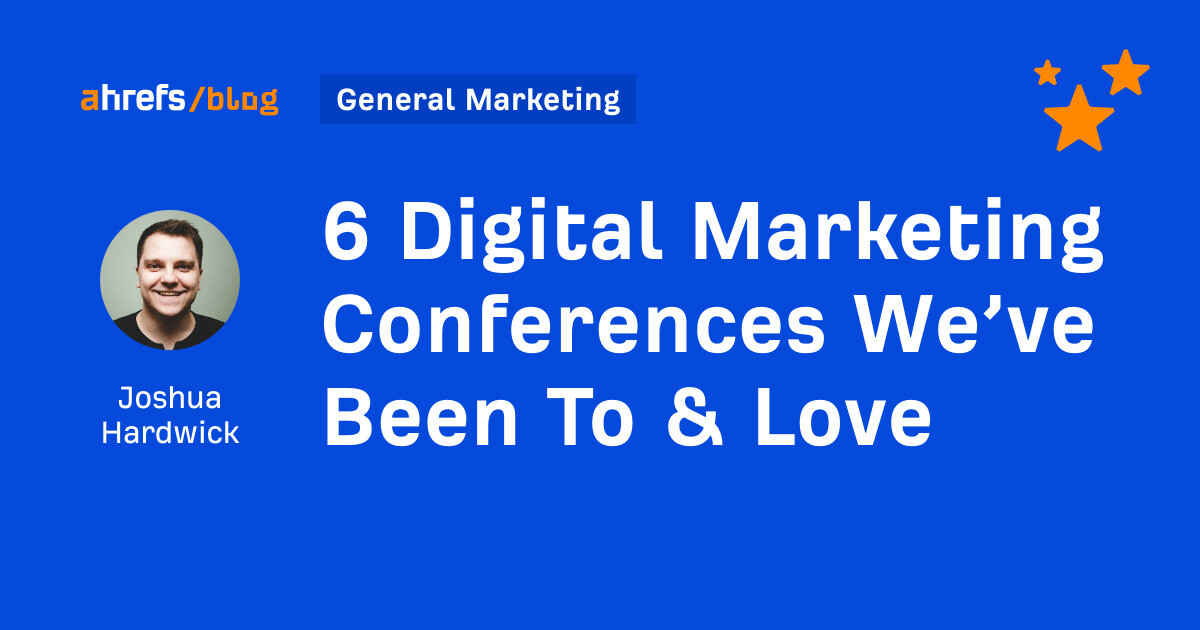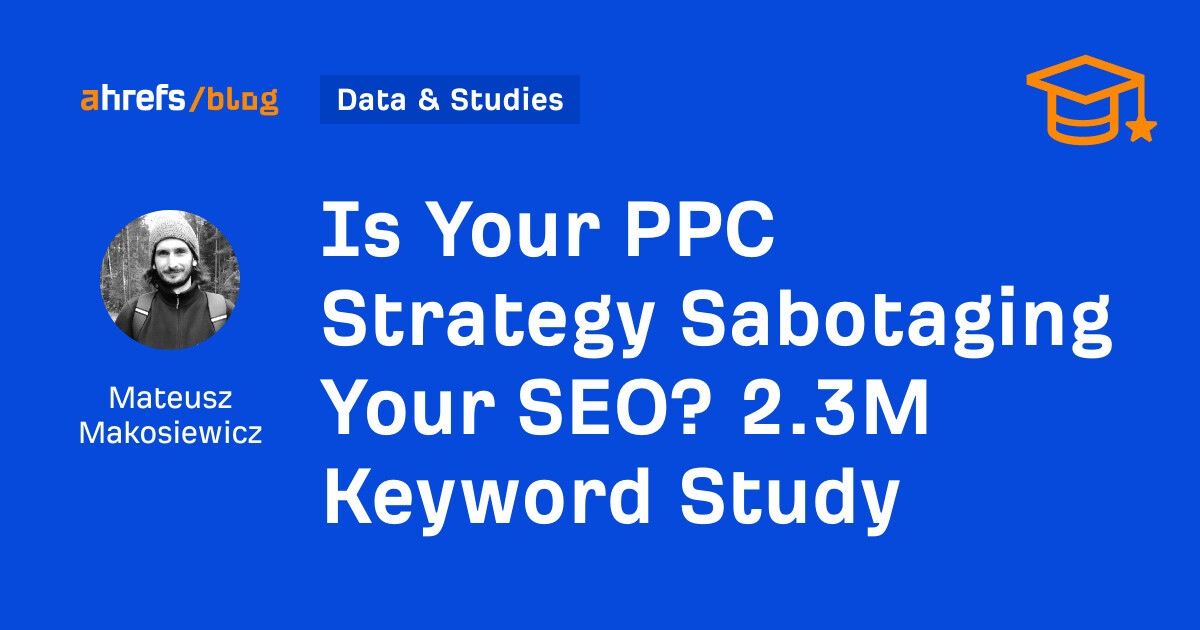Ahrefs Evolve is a wrap. And my favorite memory? All the people I met at the event.
In fact, I really loved the diversity—being held in Singapore, I was finally able to meet SEOs and marketers from around the region: Vietnam, Thailand, Philippines, Indonesia, India, Malaysia, China, South Korea, and Japan. These are rarely people you see featured or mentioned in global SEO conferences, but they are an important part of our industry.
Networking aside, the speakers were incredible too. Their talks were highly actionable and many attendees took home lessons they could immediately apply to their work to succeed on Google and other marketing channels.
So did I.
Here are my takeaways from the event—new things I’ve learned, experiments I want to conduct, and things I’m going to do differently from now on:
The SEO strategy everyone was using before the Helpful Content update was a sound one.
You could do your keyword research, optimize content via content optimization tools, ensure your on-page SEO is on-point, build some links, and voila, rank high.
But these were not content searchers wanted to see.
Slide from Cyrus Shepard’s talk
If searchers wanted a recipe, they wanted the recipe. Not a history of pasta. If searchers wanted to get started with email marketing, they wanted a simple guide. Not a 10,000-word article. If searchers wanted the best running shoe, they wanted an actual recommendation. Not scraped Amazon product descriptions.
As SEOs, we hit our KPIs. But we didn’t help our readers and customers. And we certainly didn’t help the Internet.
When was the last time you Googled a query and found something that changed your life? I couldn’t even remember when that happened.
That’s why, like Sam, I want to break free from SEO brain.
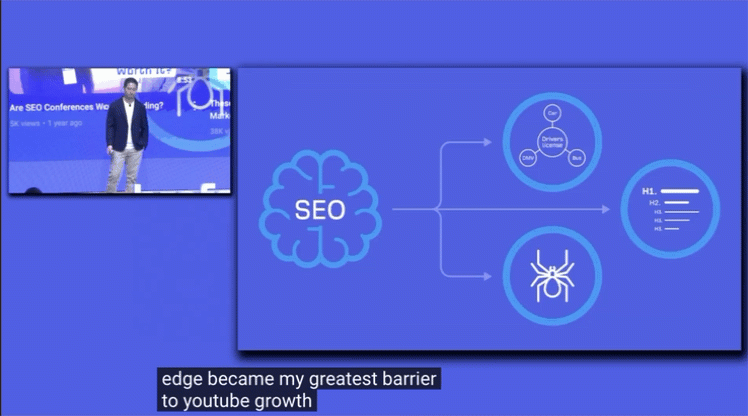
Sam was referring to YouTube, but it’s applicable to written content too.
I want to unshackle myself from having to fill in mindless “what is X” and “why is X important” content templates. I want to stop thinking that the right way to make content is to simply copy what’s already ranking, but what’s right for users. I want to exercise the right side of my brain, the part that helps us create things our readers want to see, even if they didn’t give us a hint through a search query.
I’m glad to say I’m already doing this for our blog, but Evolve showed me it was the right way going forward.
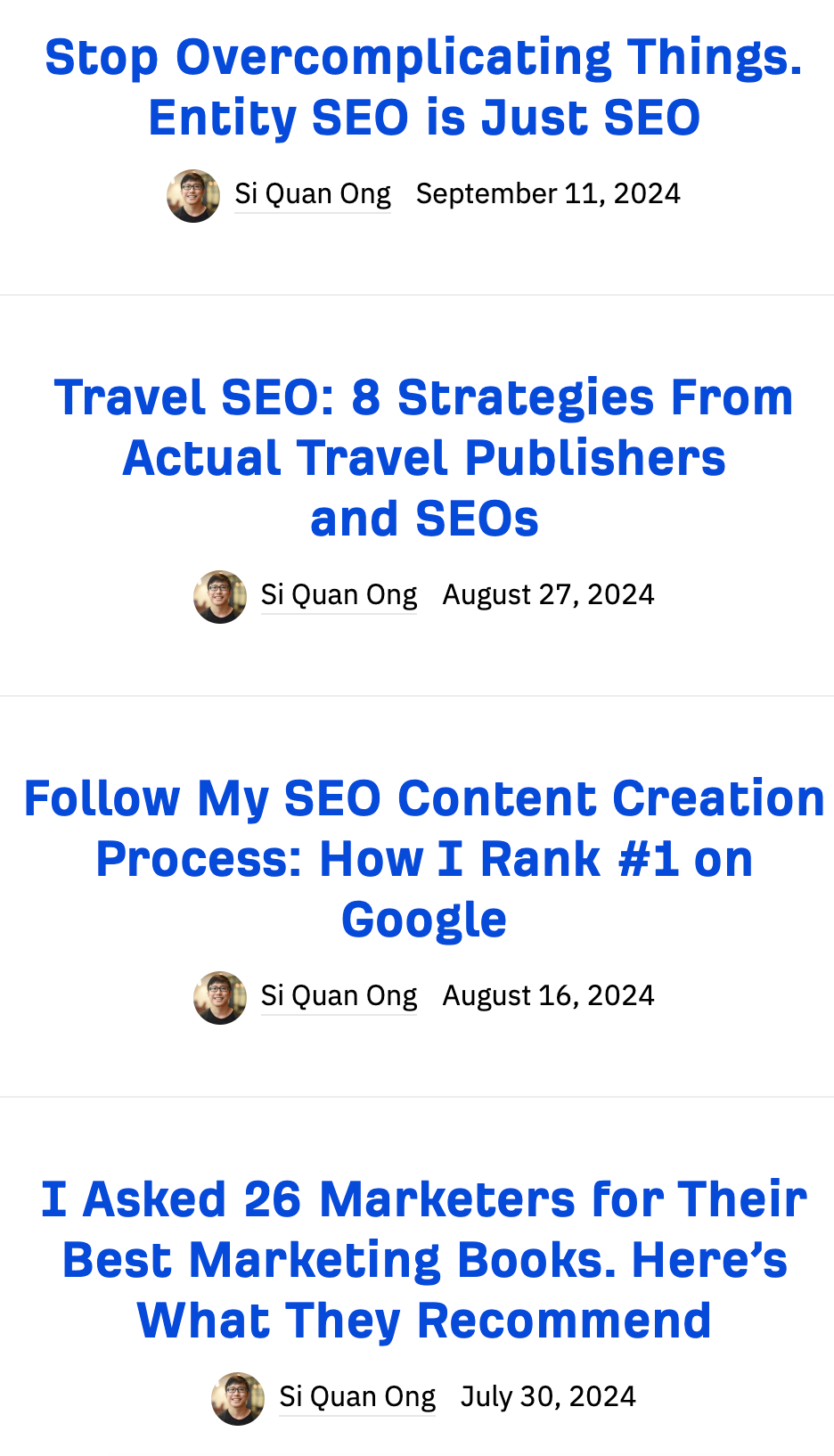
I don’t want to say we should completely abandon SEO. We can still use keyword research to inform us of what people are looking for and use search intent as a proxy to see what searchers want.
But ultimately, we don’t want to make content that looks like everyone else’s, because content also helps to build brand. And that’s why…
If there was one word to summarize most of the talks at Evolve, it would be “brand”.
Slide from Amanda King’s talk
Slide from Aleyda Solis’s talk
Evidently, brand is becoming more important, even in SEO. As Ryan argues here, it’s the easiest way for Google to combat AI spam.
This problem is so hard, in fact, that Google has hedged. Instead of evaluating the quality of each and every article, Google seems to have cut the Gordian knot, choosing instead to elevate big, trusted brands like Forbes, WebMD, TechRadar, or the BBC into many more SERPs.
After all, it’s far easier for Google to police a handful of huge content brands than many thousands of smaller ones. By promoting “trusted” brands—brands with some kind of track record and public accountability—into dominant positions in popular SERPs, Google can effectively innoculate many search experiences from the risk of AI slop.
How will that manifest in my work? I’m not exactly sure yet, but one idea we’re thinking of is to add our brand more in our content, campaigns, and communications. We’re already doing it by calling the event Ahrefs Evolve, our podcast Ahrefs podcast, and our YouTube channel AhrefsTV, but we can double down on the idea.
For example, if we shared a process for creating content, we should be calling it the “Ahrefs content creation process.” That way, we can potentially increase brand searches, which according to research, suggests that it may actually be a signal.
Slide from Aleyda Solis’s talk
But you can’t take any ol’ process and name it after your brand. It has to be special and unique. And how does a process become unique? When you actually do the work and gain the experience to say something different. Which leads to…
Both Google and searchers want to see content that has expertise or first-person experience. But it isn’t enough to say that you’ve done it—anyone can say that. You have to go the extra mile and show the work you’ve done.
For example, in Cyrus’s talk, he shared the website RunRepeat, a site that literally cuts shoes in half to test them. If you check any of their reviews, you’ll see unique GIFs and videos of them actually testing the shoes.
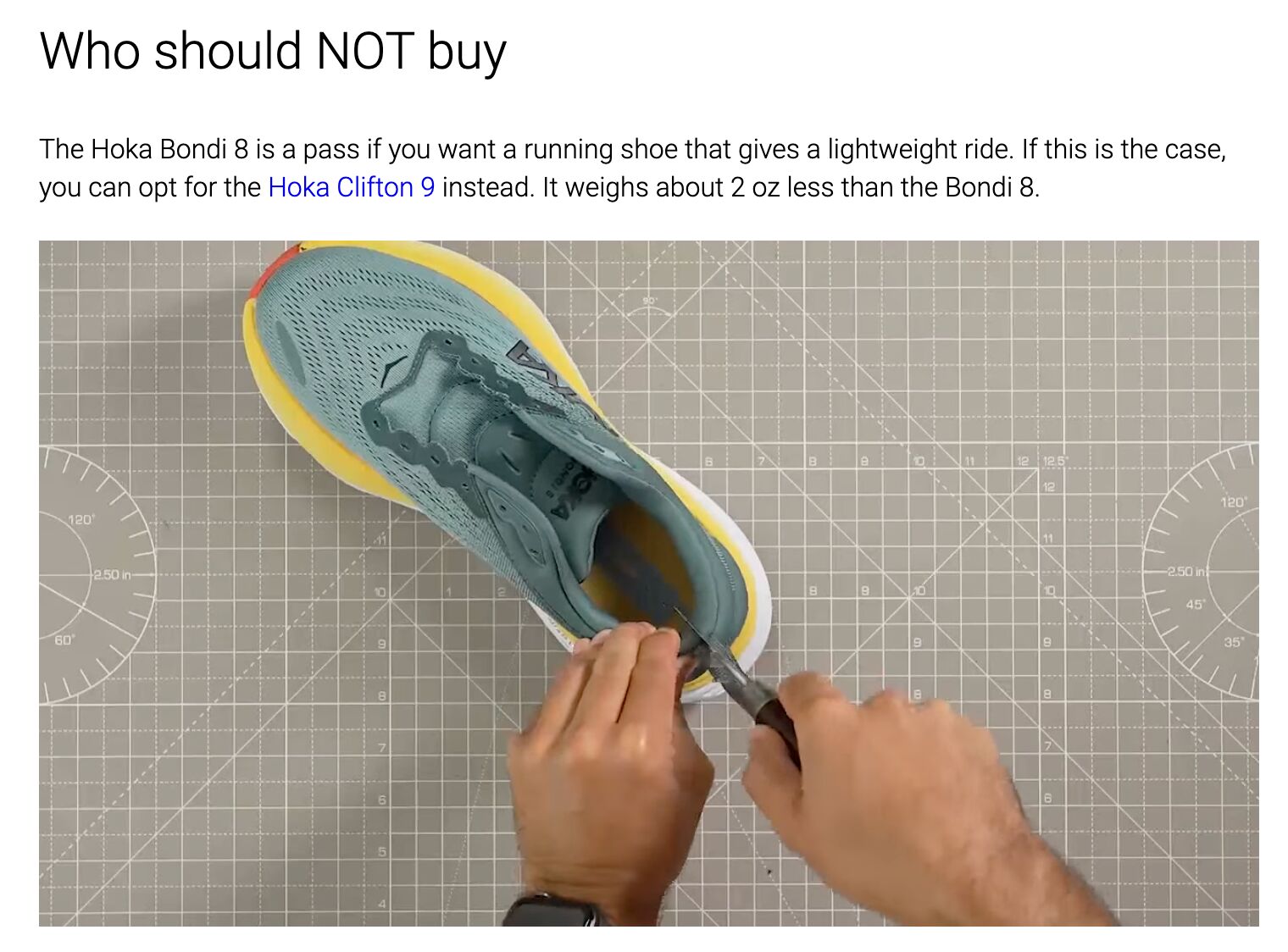
This is content Google wants to rank. You can clearly see it in their organic traffic:
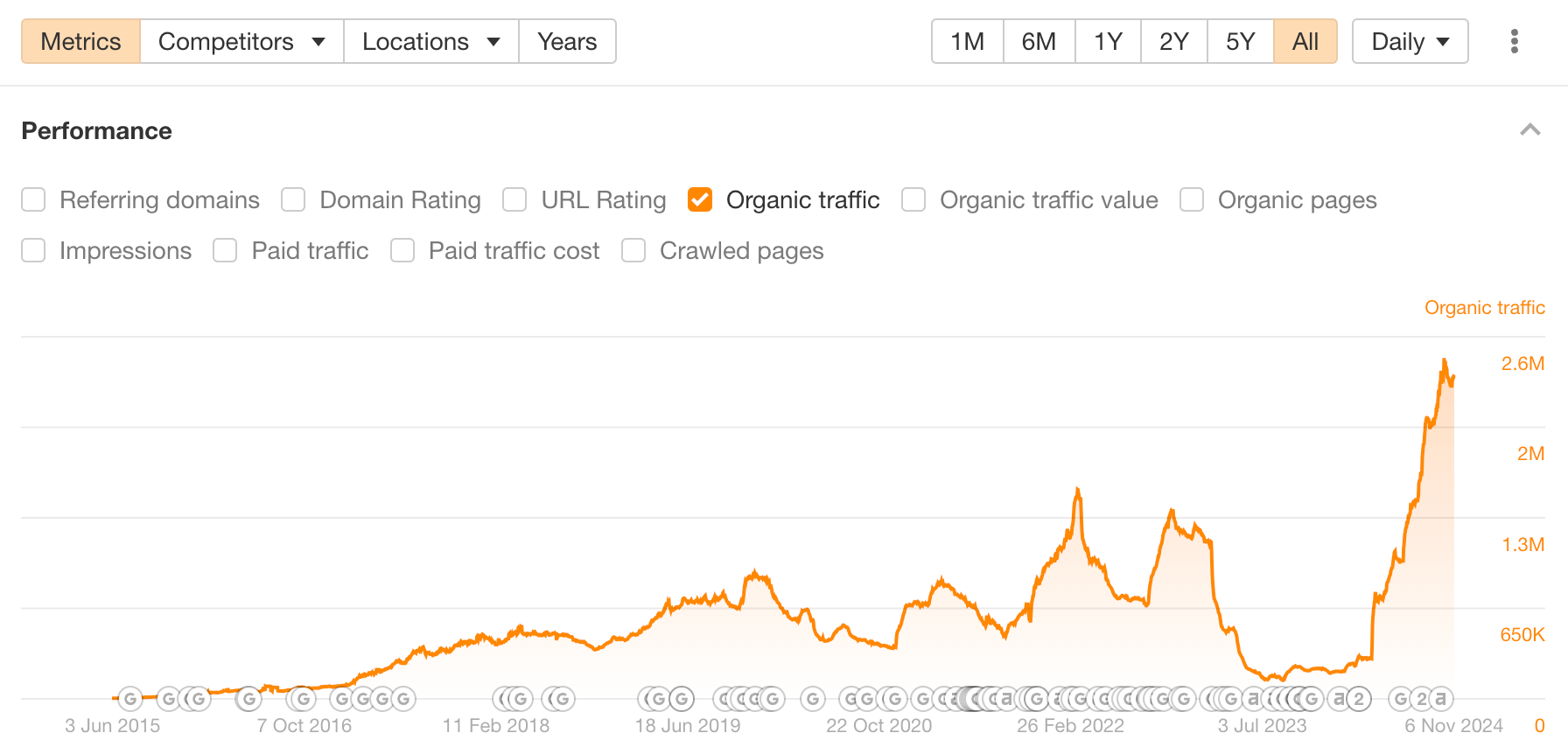
After all, AI can’t cut shoes in half… yet. Plus, the content itself is difficult to replicate—not every niche website is willing to go the extra mile to buy a few pairs of shoes, get actual testing equipment like smoke pumps and microscopes, design a complete testing methodology, and get out and run both on concrete and in water.
Not only does doing all of this give you first-hand experience, it also gives you lots of evidence to prove that you’ve done the work. As Cyrus also points out, Google Lens can tell whether an image is original or not. Most affiliate websites simply use the manufacturer’s photo, but RunRepeat doesn’t.
Slide from Cyrus Shepard’s talk
I’ve started to do some of this in my work. For example, when I asked marketers to share their favorite books with me, I didn’t just ask them for a quote. I also asked them to send in their selfies:
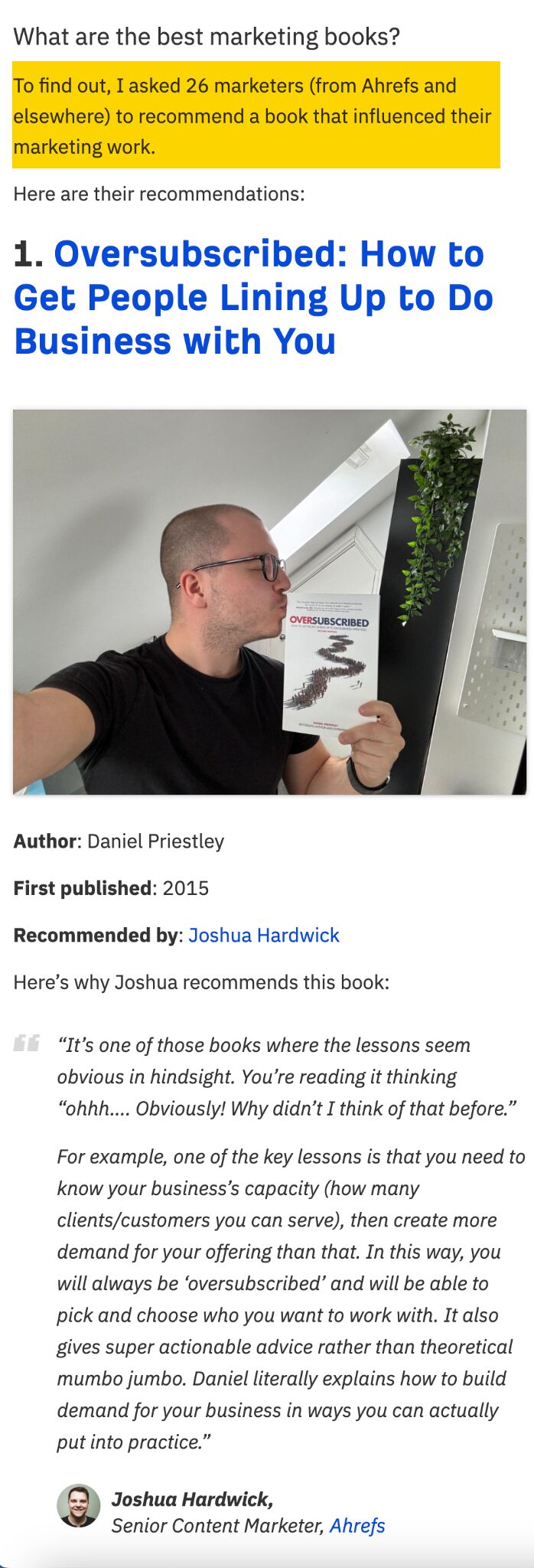
But I could be doing more. For example, I interviewed eight SEOs for my post on travel SEO. I could have easily shared screenshots of us having a Zoom call or even a selfie if it was in-person.
Likewise for my post on SEO content creation. I could have embedded a walkthrough video to show the entire thing in process.
Lots of things to improve on in this respect. And speaking of videos…
We’ve all heard about how TikTok is the new search engine for Gen Zs. (Ohgod, I’m old.) As Charlotte Ang pointed out in her talk, TikTok recognizes this trend and has become increasingly interested in being an actual search engine.
Slide from Charlotte Ang’s talk
I may be a writer, but I do have a niggling suspicion that text-based content may not be the preferred format moving forward. As Neville Medhora writes in his newsletter:
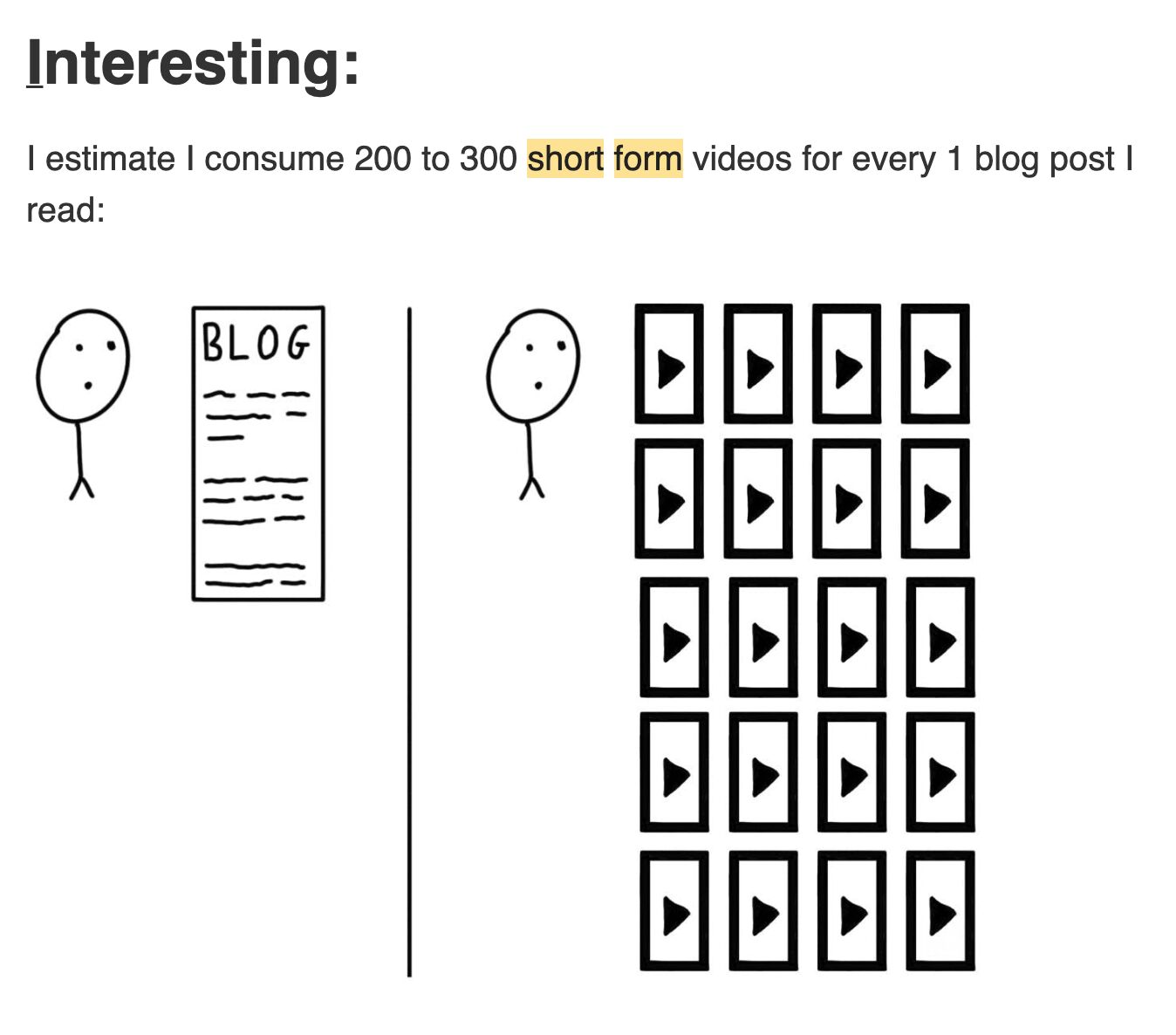
The majority of SEOs are still hyper-focused on text content and optimizing the website, but as Amanda King pointed out (and as did many of the speakers), SEO moving forward is no longer just about the website.
It’s about everything.
Slide from Amanda King’s talk
Google’s SERPs are increasingly populated by tons of features—videos, tweets, knowledge panels, images—and SEO now and in the future will be about optimizing every aspect: making videos (long and short), producing original photos and images, publishing books, and more.
Essentially, SEO is finally returning to being part of marketing.
Like it or not, TikTok, or short-form videos in general, is and will be part of the future.
While I’m not a TikTok user, Charlotte’s success has given me tons of inspiration about how to do better on the short-form video platform.
Slide from Charlotte Ang’s talk
My colleague Rebekah has experimented with the platform, so it’s not to say we’ve completely avoided it.
Will I be appearing in videos on our YouTube channel soon? Will I start to create short-form videos and optimize for TikTok, Shorts, and Reels?
Let’s see
Final thoughts
Everyone’s circumstances are different and so everyone will have different takeaways they can apply. These are my biggest ones and the things I would like to do differently from now on.
If you’d like to see takeaways from other attendees, I recommend checking out these posts:
Or look for the #ahrefsevolve hashtag on LinkedIn or X!
I’m Manas Ranjan Sahoo: Founder of “Webtirety Software”. I’m a Full-time Software Professional and an aspiring entrepreneur, dedicated to growing this platform as large as possible. I love to Write Blogs on Software, Mobile applications, Web Technology, eCommerce, SEO, and about My experience with Life.

